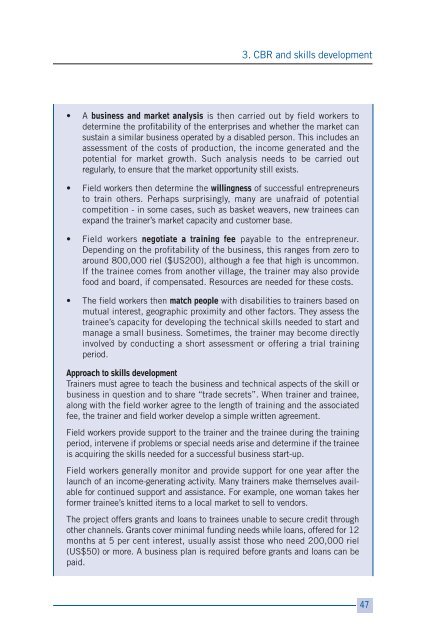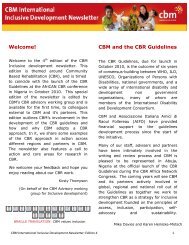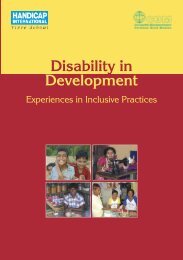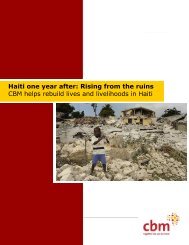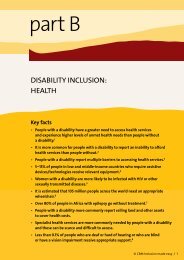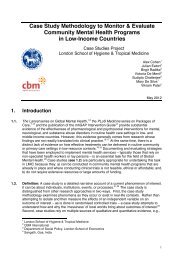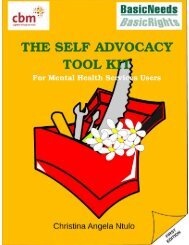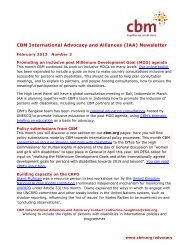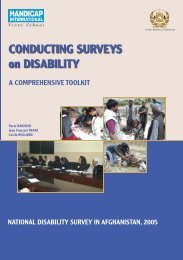Skills Development through Community Based Rehabilitation (CBR)
Skills Development through Community Based Rehabilitation (CBR)
Skills Development through Community Based Rehabilitation (CBR)
You also want an ePaper? Increase the reach of your titles
YUMPU automatically turns print PDFs into web optimized ePapers that Google loves.
3. <strong>CBR</strong> and skills development<br />
• A business and market analysis is then carried out by field workers to<br />
determine the profitability of the enterprises and whether the market can<br />
sustain a similar business operated by a disabled person. This includes an<br />
assessment of the costs of production, the income generated and the<br />
potential for market growth. Such analysis needs to be carried out<br />
regularly, to ensure that the market opportunity still exists.<br />
• Field workers then determine the willingness of successful entrepreneurs<br />
to train others. Perhaps surprisingly, many are unafraid of potential<br />
competition - in some cases, such as basket weavers, new trainees can<br />
expand the trainer’s market capacity and customer base.<br />
• Field workers negotiate a training fee payable to the entrepreneur.<br />
Depending on the profitability of the business, this ranges from zero to<br />
around 800,000 riel ($US200), although a fee that high is uncommon.<br />
If the trainee comes from another village, the trainer may also provide<br />
food and board, if compensated. Resources are needed for these costs.<br />
• The field workers then match people with disabilities to trainers based on<br />
mutual interest, geographic proximity and other factors. They assess the<br />
trainee’s capacity for developing the technical skills needed to start and<br />
manage a small business. Sometimes, the trainer may become directly<br />
involved by conducting a short assessment or offering a trial training<br />
period.<br />
Approach to skills development<br />
Trainers must agree to teach the business and technical aspects of the skill or<br />
business in question and to share “trade secrets”. When trainer and trainee,<br />
along with the field worker agree to the length of training and the associated<br />
fee, the trainer and field worker develop a simple written agreement.<br />
Field workers provide support to the trainer and the trainee during the training<br />
period, intervene if problems or special needs arise and determine if the trainee<br />
is acquiring the skills needed for a successful business start-up.<br />
Field workers generally monitor and provide support for one year after the<br />
launch of an income-generating activity. Many trainers make themselves available<br />
for continued support and assistance. For example, one woman takes her<br />
former trainee’s knitted items to a local market to sell to vendors.<br />
The project offers grants and loans to trainees unable to secure credit <strong>through</strong><br />
other channels. Grants cover minimal funding needs while loans, offered for 12<br />
months at 5 per cent interest, usually assist those who need 200,000 riel<br />
(US$50) or more. A business plan is required before grants and loans can be<br />
paid.<br />
47


